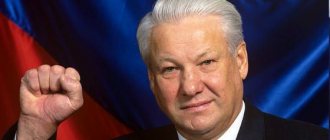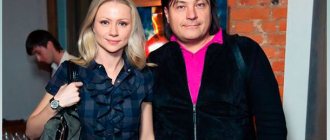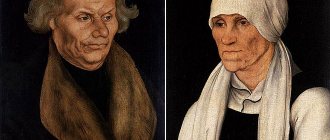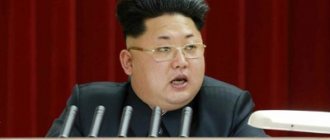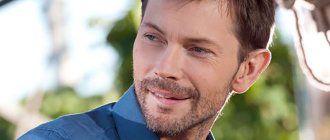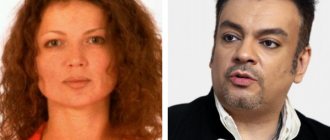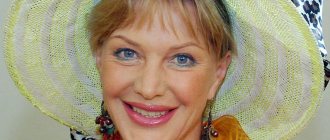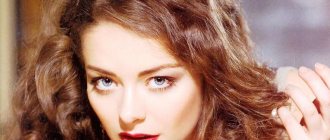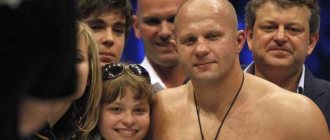Childhood
Juozas Stanislavas Budraitis was born on October 6, 1940 into a large peasant family in the village of Lipinai, Siauliai County. Juozas was the eldest of five children and has two brothers and two sisters. After the Great Patriotic War, the family moved to Klaipeda, and in 1955 to Švekshna.
Juozas Budraitis comes from a large peasant family
Juozas was not a very good student at school, but he willingly participated in school amateur activities. Despite his strict upbringing, Budraitis loved to ask his teachers uncomfortable questions. Once, during a biology lesson, the future actor asked the teacher, who was explaining the topic of pistils and stamens, to talk about the human reproductive system. Juozas's unusual behavior led to him being expelled from school in the 9th grade and began working as a carpenter.
Personal life
The actor met his wife at a dance party. Vita, that’s the name of the artist’s wife, studied at the same institute, but in a different department. Seeing the girl’s eyes, Juozas realized that he had fallen in love.
Juozas Budraitis and his wife Vita
In 1968, after a long courtship, the young people got married. The wayward bride did not even wear a white dress to the celebration. Soon children appeared in the family: son Martin and daughter Justina.
Film career
When Budraitis was a 3rd year university student, he was noticed by director Vytautas Žalakyavičius. It is worth noting that it was this director that the actor always considered the most important figure in his cinematic career. Zhalakevicius invited the student to play a role in the film “Nobody Wanted to Die,” which viewers saw in 1966.
Juozas Budraitis in the film “Nobody Wanted to Die”
After finishing work on the film, Budraitis transferred to the correspondence course, and after receiving a law degree, he got a job not in his specialty, but at the Lithuanian Film Studio. Offers for the non-professional actor poured in as if from a cornucopia.
Juozas Budraitis in the film “Shield and Sword”
In 1968, the film “Shield and Sword” was released on the screens of the country, in which, in addition to Budraitis, Stanislav Lyubshin and Oleg Yankovsky starred. The Lithuanian actor struck up a friendship with Yankovsky that lasted for many years. The friends met again on the set of Grigory Kozintsev’s film “Two Comrades Served” in the same 1968.
Juozas Budraitis in the film “Two Comrades Served”
In 1969, Budraitis starred in the film “Lanfier Colony” based on the story by Alexander Green. The director of this film was Czech Jan Schmidt. Thanks to this film, the Lithuanian was noticed abroad, but he could film mainly in the countries of the so-called people's democracy.
Juozas Budraitis in the film "Lanfier Colony"
In 1970, Kozintsev again cast Budraitis in his film King Lear, which became a classic of Soviet cinema. The actor said in an interview that the great director was so intelligent and attentive that every year he sent him a New Year’s card.
Juozas Budraitis in the film “King Lear”
In the 1970s, Juozas Budraitis starred in more than two dozen films. The actor said that most often he was invited to play the roles of Germans or foreign bourgeois, but since the costume designers did not have the opportunity to choose the appropriate equipment for the “bourgeois,” Budraitis looked rather comical. In addition, the directors believed that the Lithuanian was suitable for the roles of gloomy introverts, which did not correspond to the real character of the actor.
Juozas Budraitis and Marina Neelova in the film “With You and Without You”
Finally, in 1973, director Rodion Nakhapetov invited Budraitis to play the main role in his film “With You and Without You.” The actor played a peasant, in his words, himself. Members of the artistic council did not want to approve a Lithuanian for the role of a Russian man, noting that Budraitis looked more like a Swede. “With You and Without You” is a film about love. The actor's partner on the set was Marina Neelova.
Juozas Budraitis in the historical film “The Legend of Tila”
In 1976, viewers saw Budraitis in the costumed historical film about the Middle Ages, “The Legend of Tila.”
In 1977, the actor starred in the film about the war “Blockade. Leningrad metronome. Operation "Iskra" together with such outstanding colleagues as Sergei Filippov, Yuri Solomin, Vladislav Strzhelchik, Mikhail Ulyanov and others. This is a continuation of the film “Blockade. Luga border. Pulkovo Meridian", released in 1974 with the same cast.
Juozas Budraitis often played Germans in films (still from the film “Blockade. Leningrad Metronome. Operation Iskra”)
In 1979, Budraitis starred in the series “Karl Marx. Young Years”, playing the German prose writer and philosopher Arnold Rugge. Filming took place in Paris. Juozas Budraitis in the film “Dangerous Age” In the 80s, the Lithuanian actor also acted intensively. Viewers especially remembered the film “Dangerous Age,” which was released in 1981. In this family drama, Budraitis played the main role, and Alisa Freundlich became his on-screen wife.
In the film "Dangerous Age" Juozas Budraitis and Alisa Freindlich played spouses
A year earlier, in 1980, Budraitis again managed to work abroad. He starred in the film of the Bulgarian film studio “Big Night Swimming” and in the Italian film “Life is Beautiful,” directed by Grigory Chukhrai.
Juozas Budraitis in the series “The Rich Man. Poor man"
In 1985, the actor played in the popular TV series “Rich Man. Poor man." This role further increased Budraitis’s army of fans; film critics also received the film very favorably.
In addition, in the 80s, viewers saw the actor in such films as: “European History”, “Confession of His Wife”, “Last Visit”, “13th Apostle”, “Sinner”, “House with No Exit” and others .
Juozas Budraitis in the film “The Sinner”
In the 90s, after the collapse of the USSR, difficult times came for cinema. Many actors could not find work and left the profession. Juozas Budraitis seemed to have avoided these problems. Proposals continued to come, although not in such quantities as before: “Forgive us, stepmother Russia”, “Crazy Laurie”, “Don’t ask me anything”, “Tragedy of the century”, “I don’t know who I am”, “Classic”, “Russian revolt”.
Juozas Budraitis in the film “Classic”
A special place in the list of Budraitis’s works in this decade is occupied by his role in the film by Oleg Mishin based on the script by Ivan Okhlobystin “The Publican”.
In the 2000s, Juozas Budraitis continued to actively act in film. It is noteworthy that the actor played in one of the films in the anthology “The Black Room”, which became the directorial debut of Andrei Zvyagintsev.
In the 2000s, Juozas Budraitis continued to actively act in films (“Down House”)
In 2001, the actor starred in a modern interpretation of Dostoevsky’s novel “The Idiot” - the film “Down House”. A star cast gathered on the set of this black comedy: Fyodor Bondarchuk, Ivan Okhlobystin, Alexander Bashirov, Barbara Brylska and others.
In 2005, Budraitis was invited to the costumed historical film “The Saga of the Ancient Burgars”, consisting of two parts: “The Tale of Olga the Saint” and “Vladimir’s Ladder the Red Sun”.
Juozas Budraitis in the film “Winter Romance”
In the same year, actor and director Oleg Mishin again invited Budraitis to his film. This time the actor played in the adventure series “KGB in a Tuxedo.”
Still from the movie “Black Lightning”
In 2009, Budraitis starred in the not very familiar genre of fantasy action film “Black Lightning” and played a storyteller in the Ukrainian film “The True Story of Scarlet Sails.” Juozas Budraitis in the “Portrait” program The Lithuanian actor was willingly invited to appear in films and TV series by directors throughout the former Soviet Union in the 2010s. Mostly these were small but diverse roles: from a bishop to a truck driver.
Creativity[ | ]
Theater roles[ | ]
- 1980 - “The Builder Solnes” by G. Ibsen - Solnes
- 1980 - “Šarunas” by V. Krewe - Prince Sarunas
- 1982 - “Blue Horses on Red Grass” by Mikhail Shatrov - Lenin
- 1983 - “Caligula” by Albert Camus - Herea
- 1985 - “Private Soldiers” by A. A. Dudarev - Dervoed
- 1985 - Shakespeare's Richard II - King Richard II
- 1986 - “Home for the Elderly” by M. Korres - Nikos
Director of all productions - J. Vaitkus
Movie roles[ | ]
- 1961 - When the rivers merge - a guy in Jonas' brigade
- 1966 - Nobody wanted to die - son Jonas
(dubbed by Yuri Solovyov) - 1966 - Well - Matas Krauza, farmer
- 1967 - Girl in Black - Tanel, young fisherman
- 1968 - Shield and Sword - Captain von Dietrich (in the 3rd episode - Major)
(voice - Alexander Grave) - 1968 - Feelings - Andrius
- 1968 - Two comrades served - member of the Red headquarters
- 1969 - Let there be life! — Albinas
- 1969 - Colony Lanfieri / Kolonie Lanfieri
(Czechoslovakia) -
Horn - 1969 - June, early summer - Nauekaitis, trust manager
- 1969 - White Dunes - father
- 1970 - The whole truth about Columbus - Pablo, revolutionary
- 1970 - Men's Summer - brothers Zigmas and Algis Alsis
- 1970 - King Lear - King of France
- 1971 - This damned humility - Mikaliukas, village violinist
- 1971 - Rudobel Republic - Nightingale
- 1971 - A Little Confession - Rescuer Marthas
- 1972 - The Fourth - Ben Crowe
- 1972 - This sweet word is freedom! — Felicio, blackmailer
(voiced by Valentin Nikulin) - 1973 - With and without you - Fyodor Bazyrin
- 1973 - Black Captain - Brassard, a businessman from France
- 1973 - Man in Plain Clothes - Sergei, intelligence officer
- 1974 - Blockade - Danwitz, German major
- 1975 - Saduto-tuto - Petras, sculptor
- 1975 - Time-No-Waits - - Elam Harnish, “Time-No-Waits”
- 1976 - The Legend of Tila - Trelon, admiral
- 1976 - Wounded wounded animals - Alexey Bartenev
(voiced by Nikolai Gubenko) - 1977 - The Life and Death of Ferdinand Luce - Hans Dornbrock
(voiced by Rodion Nakhapetov) - 1977 - Lost Home - Gediminas Dziugas
- 1977 - Enemies - Nikolai Skrobotov
- 1978 - Velvet Season - Nicholas, Nikolai Shukhov (voice - Nikolai Gubenko)
- 1978 - The Marquis and the Shepherdess - Marseille
- 1978 - Centaurs - Raymond
- 1979 - Inspector Gull - Inspector Gull
(voiced by Vladimir Ferapontov) - 1979 - Wait for "John Grafton" - Adelberg
- 1980 - Fairfax's Millions - Anthony Fairfax, millionaire
- 1980 - Karl Marx. Early life - Arnold Ruge
- 1980 - Big night swimming / Golyamoto noshtno kapane
(Bulgaria) -
Valentin Stefanov, engineer - 1980 - Life is Beautiful - Gomez (voiced by Felix Yavorsky)
- 1980 - Fact - Lieutenant Jozefas Shaknis
- 1981 - Dangerous age - Narkis Mikhailovich Rodimtsev
(voiced by Innokenty Smoktunovsky) - 1982 - Theft - Howard Knox
(voiced by Rodion Nakhapetov) - 1982 - Honeymoon in America - George Sticker
- 1982 - The day after tomorrow at midnight - Pchelintsev
- 1982 - Niccolo Paganini - Hector Berlioz
- 1982 - The Mystery of the Fugitive Colony / Die Kolonie
(GDR) -
Lopez, Commissioner - 1983 - Carousel - Lev Sergeevich, chemist
(voiced by Alexander Kaidanovsky) - 1983 - Return from orbit - Kuznetsov, cosmonaut
- 1983 - Flight across the Atlantic Ocean - Nungesser
- 1984 - Rich Man, Poor Man... - Denton
- 1984 - European History - Nichols
- 1984 - Confession of his wife - Jonas
- 1984 - Last visit - Jack
(voiced by Sergei Shakurov) - 1985 - Day of Wrath - Betley, journalist
- 1985 - Battle for Moscow - Richard Sorge
- 1986 - All Against One - Jerry Jackson
- 1986 - Game of the Chameleon - Sibillo
- 1987 - Sunday in Hell - German General
- 1987 - Corral - Gardner, US Ambassador
- 1987 - Mermaid Banks - Clement Bentson
- 1988 - 13th Apostle - Captain Amos
- 1988 - Lapta (short film)
- 1988 - Sinner - turner worker Pyotr Ivanovich Maslov
(voiced by Albert Filozov) - 1988 - House without exit - Staro
- 1989 - Koshav Silver - He
- 1989 - Revenge
- 1989 - Under the blue sky... - Sobolev Sr.
(voiced by Innokenty Smoktunovsky) - 1989 - The Endhouse Mystery - Charles Wise
- 1990 - Our dacha - Gena Kozlov
- 1990 - Forgive us, stepmother Russia - Rusakov
- 1991 - Crazy Laurie - Andrew McDuey
- 1991 - Don’t ask me anything - Kirill
- 1991 - Trail of Rain - Andrei Andreevich Berger
- 1993 - Anomaly - Alexander Kartin
- 1993 - Tragedy of the Century (TV series) - Richard Sorge
- 1994 - House on the Rock
- 1994 - Charm of the Devil
- 1995 - I don't know who I am
- 1997 - Publican - Oleg Alexandrovich
- 1998 - Classic - Andrei Andreevich Savitsky
(voiced by Vsevolod Abdulov) - 1999 - Russian revolt - governor of Orenburg
- 2000 - DMB - Lieutenant General of Aviation
(voiced by Rudolf Pankov) - 2000 - Black Room - Juozas
(short story “Revenge is Sweet”) - 2001 - Collector
- 2001 — Russian Amazons (TV series)
- 2001 - Down House - General Epanchin
(voiced by Boris Khimichev) - 2002 - Lithuanian transit (TV series) - Vizgirda
- 2003 - Moscow. Central District (TV series) - Father Niyole
- 2003 - Day representative - Darlak, Count
- 2004 - Winter Romance - Ivan
(voiced by Albert Filozov) - 2004 - Keys to the Abyss - Voldemar Kaminsky
(voiced by Albert Filozov) - 2004 - Princess Slutskaya - Ferdinand
- 2004 - Death of the Empire (TV series) - Krantz
- 2004 - Copper Grandmother - Reichman
- 2005 - Saga of the ancient Bulgars. The Legend of Olga the Saint
- 2005 - Saga of the ancient Bulgars. Vladimir's Ladder Red Sun - Asmud, boyar
- 2005 - KGB in a tuxedo - Geskin, Baron
- 2005 - Arie
- 2006 - Chasing an Angel - Pyotr Arkhangelsky
- 2006 - Payment for love - Georgy Matveevich
- 2007 - Wolf of the Gray Dogs - Dungorm
- 2007 — Tanker “Tango” (TV series)
- 2007 - Sin is an old man
- 2007 - Formula of Elements (TV series) - Silin
- 2007 - Debt is an old man
- 2008 - Photo of my girlfriend - Uncle Sasha
- 2008 - Apostle - Steinnitz
- 2009 - First attempt - Rostislav Alekseevich, minister
- 2009 - North Wind - Karl Reisman
- 2009 - Black Lightning - Mikhail Elizarov, inventor
- 2009 - Kromov - warehouse manager
- 2009 - The True Story of Scarlet Sails - storyteller
- 2010 - Chemist - Henry
- 2010 - About love - Lena's father
- 2011 - Two ladies in Amsterdam
- 2011 - Fights. Agent Blake's Choice - Bishop Cooper
- 2011 - Which did not exist - scientist
- 2013 - A matter of honor - Stepan Mikhailovich Voronov (Raven), crime boss
- 2013 - The Sniffer - Lokmus
- 2013 - Dreams - truck driver
- 2014 - Star - old man
- 2014 - White Dews. Return - Andrey Fedosovich Khodas, inhabitant of the farm
(voiced by Vladimir Gritsevsky) - 2015 - Vera’s sweet farewell - airliner commander
- 2017 - Son - Johan, Timo's father
Other projects
Juozas Budraitis tried his hand at directing, although not very successfully: in 1992 he directed the short film “City of Birds” based on the story “Love” by Yuri Olesha. At this point, the actor completed his directorial experiments.
Juozas Budraitis tried his hand at directing, although not very successfully.
While studying at the Higher Courses for Scriptwriters and Directors, Budraitis became friends with the chief director of the Kaunas Drama Theater, who invited the actor to his theater. At KDT, Budraitis played many serious roles in the plays: “The Builder of Solnes” by G. Ibsen, “Sarunas” by V. Kreve, “Blue Horses on Red Grass” by M. Shatrov, “Caligula” by A. Camus, “Private Soldiers” by A. Dudarev.
Juozas Budraitis played many serious roles in plays (production “The Seagull”)
Another passion of Budraitis is photography. He began taking photographs while filming The Shield and the Sword in 1967. Since no one paid much attention to the actor, the pictures turned out surprisingly alive. Many years later, Budraitis’s photographs came to the head of the Moscow House of Photography, Olga Sviblova. In 2010, she organized an exhibition of photographs by Budraitis as part of the international biennale. This was the beginning. The actor’s photographic works were exhibited in many cities of Russia, Lithuania and other countries of the former Soviet Union.
Photography is the passion of Juozas Budraitis
In addition to his passion for photography, the actor has always loved to draw. He did this exclusively for himself at a time when he was not busy on the set, and did not even intend to exhibit his creations. However, the Kino gallery hosted an exhibition of the actor in 2008, which featured collages, watercolors, pastels and mixed media works. The actor said that no one said a single bad word about his work, and this is already a great success for a self-taught artist.
Theater
In 1976, Juozas entered the Higher Courses for Scriptwriters and Directors, where his new acquaintance was Jonas Vaitkus, who at that time headed the Kaunas Drama Theater, where the actor was invited. Among the stage roles of Budraitis, we should highlight Dervoed from “Privates”, Herea from “Caligula”, Lenin from “Blue Horses on Red Grass”, the main characters of “Šarunas” and “The Builder of Solnes”.
The fact that I can act with my eyes in front of a movie camera doesn’t bother anyone in the theater. Gesture, action, intonation are important there, and I move around the stage like a robot. In addition, I do not participate in squabbles and gossip.
In 1988, Juozas left KDT.
Social activity
Juozas Budraitis was cultural attaché and minister-counselor of the Lithuanian embassy in Russia from 1996 to 2000. All this time he fought to maintain good relations between the Russian and Lithuanian peoples. The result of his work was the scientific and educational project “Window to Lithuania,” which attracted a large number of both Russian and Lithuanian creative intelligentsia. Under the patronage of the cultural attaché, several collections of Lithuanian poets were published in Russia. For this work, Juozas Budraitis was awarded the Order of Friendship of the Russian Federation. Interview with Juozas Budraitis, Cultural Attaché of the Lithuanian Embassy in Russia
Personal life of Juozas Budraitis
Juozas studied at the same university with his wife Vitta, she at the Faculty of Chemistry, he at the Faculty of Law. The meeting took place at one of the student parties, and in 1968 the young people got married.
Juozas Budraitis with his wife
Vitta Budraitis became a successful chemist, even inventing an anti-corrosion coating for cars. For this, she was allowed to purchase a Zhiguli car without a queue and at cost. This was Budraitis's first car.
Juozas Budraitis with his daughter Justina
Two children were born into a friendly family. Budraitis’s son lives in Lithuania, he already has his own family, a child. Daughter Justina lives and works in London, she is married, but has no plans to become a mother yet.
Almost all women of the Soviet Union were in love with the courageous Budraitis. The actor said in an interview that one day a fan from a small town came to see him, she came to Budraitis’s apartment with a suitcase and declared that she would live with him and take care of him and his son. When the girl was informed that the actor was married, she got angry and left, abandoning her suitcase, which was filled to the brim with photographs and articles about her favorite actor. Budraitis and his wife burned the suitcase along with its contents, and, according to the actor, it burned with a bright blue flame.
Excerpt characterizing Budraitis, Juozas Stanislavas
“Yes, Count, he is too noble and pure of soul,” she used to say, “for our current, corrupted world.” Nobody likes virtue, it hurts everyone's eyes. Well, tell me, Count, is this fair, is this fair on Bezukhov’s part? And Fedya, in his nobility, loved him, and now he never says anything bad about him. In St. Petersburg, these pranks with the police officer were something they joked about, because they did it together? Well, Bezukhov had nothing, but Fedya bore everything on his shoulders! After all, what did he endure! Suppose they returned it, but how could they not return it? I think there weren’t many brave men and sons of the fatherland like him there. Well now - this duel! Do these people have a sense of honor? Knowing that he is the only son, challenge him to a duel and shoot so straight! It's good that God had mercy on us. And for what? Well, who doesn’t have intrigue these days? Well, if he is so jealous? I understand, because he could have made me feel it before, otherwise it went on for a year. And so, he challenged him to a duel, believing that Fedya would not fight because he owed him. What baseness! That's disgusting! I know you understood Fedya, my dear count, that’s why I love you with my soul, believe me. Few people understand him. This is such a high, heavenly soul! Dolokhov himself often, during his recovery, spoke to Rostov such words that could not have been expected from him. “They consider me an evil person, I know,” he used to say, “so be it.” I don’t want to know anyone except those I love; but whom I love, I love him so much that I will give my life, and I will crush the rest if they stand on the road. I have an adored, unappreciated mother, two or three friends, including you, and I pay attention to the rest only as much as they are useful or harmful. And almost everyone is harmful, especially women. Yes, my soul,” he continued, “I have met loving, noble, sublime men; but I haven’t met women yet, except for corrupt creatures - countesses or cooks, it doesn’t matter. I have not yet encountered that heavenly purity and devotion that I look for in a woman. If I found such a woman, I would give my life for her. And these!...” He made a contemptuous gesture. “And do you believe me, if I still value life, then I value it only because I still hope to meet such a heavenly being who would revive, purify and exalt me.” But you don't understand this. “No, I understand very much,” answered Rostov, who was under the influence of his new friend. In the fall, the Rostov family returned to Moscow. At the beginning of winter, Denisov also returned and stayed with the Rostovs. This first time of the winter of 1806, spent by Nikolai Rostov in Moscow, was one of the happiest and most cheerful for him and for his entire family. Nikolai brought many young people with him to his parents’ house. Vera was twenty years old, a beautiful girl; Sonya is a sixteen-year-old girl in all the beauty of a newly blossoming flower; Natasha is half a young lady, half a girl, sometimes childishly funny, sometimes girlishly charming. In the Rostov house at that time there was some kind of special atmosphere of love, as happens in a house where there are very nice and very young girls. Every young man who came to the Rostovs’ house, looking at these young, receptive, smiling girlish faces for something (probably at their happiness), at this animated running around, listening to this inconsistent, but affectionate to everyone, ready for anything, hope-filled babble of a woman The youth, listening to these inconsistent sounds, now singing, now music, experienced the same feeling of readiness for love and expectation of happiness, which the youth of the Rostov house themselves experienced. Among the young people introduced by Rostov, one of the first was Dolokhov, who was liked by everyone in the house, with the exception of Natasha. She almost quarreled with her brother over Dolokhov. She insisted that he was an evil person, that in the duel with Bezukhov Pierre was right, and Dolokhov was to blame, that he was unpleasant and unnatural. “I don’t understand anything,” Natasha shouted with stubborn willfulness, “he’s angry and without feelings.” Well, I love your Denisov, he was a carouser and that’s all, but I still love him, so I understand. I don’t know how to tell you; He has everything planned, and I don’t like it. Denisova... “Well, Denisov is a different matter,” answered Nikolai, making it feel that in comparison with Dolokhov, even Denisov was nothing, “you need to understand what kind of soul this Dolokhov has, you need to see him with his mother, this is such a heart!” “I don’t know this, but I feel awkward with him.” And do you know that he fell in love with Sonya? - What nonsense... - I'm sure you'll see. – Natasha’s prediction came true. Dolokhov, who did not like the company of ladies, began to visit the house often, and the question of who he was traveling for was soon (although no one spoke about it) was resolved so that he was traveling for Sonya. And Sonya, although she would never have dared to say this, knew this and every time, like a redneck, she blushed when Dolokhov appeared. Dolokhov often dined with the Rostovs, never missed a performance where they were present, and attended adolescentes [teenagers] balls at Yogel’s, where the Rostovs always attended. He paid preferential attention to Sonya and looked at her with such eyes that not only she could not stand this look without blushing, but also the old countess and Natasha blushed when they noticed this look. It was clear that this strong, strange man was under the irresistible influence exerted on him by this dark, graceful, loving girl. Rostov noticed something new between Dolokhov and Sonya; but he did not define to himself what kind of new relationship this was. “They are all in love with someone there,” he thought about Sonya and Natasha. But he was not as comfortable with Sonya and Dolokhov as before, and he began to be at home less often. Since the autumn of 1806, everything again started talking about the war with Napoleon even more fervently than last year. Not only were recruits appointed, but also 9 more warriors out of a thousand. Everywhere they cursed Bonaparte with anathema, and in Moscow there was only talk about the upcoming war. For the Rostov family, the whole interest of these preparations for war lay only in the fact that Nikolushka would never agree to stay in Moscow and was only waiting for the end of Denisov’s leave in order to go with him to the regiment after the holidays. The upcoming departure not only did not prevent him from having fun, but also encouraged him to do so. He spent most of his time outside the house, at dinners, evenings and balls. XI On the third day of Christmas, Nikolai dined at home, which had rarely happened to him lately. It was officially a farewell dinner, since he and Denisov were leaving for the regiment after Epiphany. About twenty people were having lunch, including Dolokhov and Denisov. Never in the Rostov house did the air of love, the atmosphere of love, make itself felt with such force as on these holidays. “Catch moments of happiness, force yourself to love, fall in love yourself! Only this one thing is real in the world - the rest is all nonsense. And that’s all we’re doing here,” said the atmosphere. Nikolai, as always, having tortured two pairs of horses and not having had time to visit all the places where he needed to be and where he was called, arrived home just before lunch. As soon as he entered, he noticed and felt the tension of the loving atmosphere in the house, but he also noticed a strange confusion reigning between some of the members of the society. Sonya, Dolokhov, the old countess and a little Natasha were especially excited. Nikolai realized that something was going to happen before dinner between Sonya and Dolokhov, and with his characteristic sensitivity of heart he was very gentle and careful during dinner in dealing with both of them. On the same evening of the third day of the holidays there was supposed to be one of those balls at Yogel (the dance teacher), which he gave on holidays for all his students and female students. - Nikolenka, will you go to Yogel? Please go,” Natasha told him, “he especially asked you, and Vasily Dmitrich (it was Denisov) is going.” - Where will I not go on the orders of G'afini! - said Denisov, who jokingly placed himself in the Rostov house on the foot of the knight Natasha, - pas de chale [dance with a shawl] is ready to dance. - If I have time! “I promised the Arkharovs, it’s their evening,” Nikolai said. “And you?...” he turned to Dolokhov. And as soon as I asked this, I noticed that I shouldn’t have asked this. “Yes, maybe...” Dolokhov answered coldly and angrily, looking at Sonya and, frowning, with exactly the same look with which he looked at Pierre at the club dinner, he looked again at Nikolai. “There is something,” thought Nikolai, and this assumption was further confirmed by the fact that Dolokhov left immediately after dinner. He called Natasha and asked what was it? “I was looking for you,” Natasha said, running out to him. “I told you, you still didn’t want to believe,” she said triumphantly, “he proposed to Sonya.” No matter how little Nikolai did with Sonya during this time, something seemed to come off in him when he heard this. Dolokhov was a decent and in some respects a brilliant match for the dowry-free orphan Sonya. From the point of view of the old countess and the world, it was impossible to refuse him. And therefore Nikolai’s first feeling when he heard this was anger against Sonya. He was preparing to say: “And great, of course, we must forget our childhood promises and accept the offer”; but before he had time to say this... - Can you imagine! She refused, completely refused! – Natasha spoke. “She said she loves someone else,” she added after a short silence. “Yes, my Sonya could not have done otherwise!” thought Nikolai. - No matter how much my mother asked her, she refused, and I know she won’t change if she said anything... - And my mother asked her! – Nikolai said reproachfully. “Yes,” said Natasha. - You know, Nikolenka, don’t be angry; but I know that you will not marry her. I know, God knows why, I know for sure, you won’t get married. “Well, you don’t know that,” said Nikolai; – but I need to talk to her. What a beauty this Sonya is! – he added smiling. - This is so lovely! I'll send it to you. - And Natasha, kissing her brother, ran away. A minute later Sonya came in, frightened, confused and guilty. Nikolai approached her and kissed her hand. This was the first time on this visit that they spoke face to face and about their love. “Sophie,” he said timidly at first, and then more and more boldly, “if you want to refuse not only a brilliant, profitable match; but he is a wonderful, noble man... he is my friend... Sonya interrupted him. “I already refused,” she said hastily. “If you refuse for me, then I’m afraid that on me...” Sonya again interrupted him. She looked at him with pleading, frightened eyes. “Nicolas, don’t tell me that,” she said. - No, I have to. Maybe this is suffisance [arrogance] on my part, but it’s better to say. If you refuse for me, then I must tell you the whole truth. I love you, I think, more than anyone else... “That’s enough for me,” Sonya said, flushing. - No, but I have fallen in love a thousand times and will continue to fall in love, although I do not have such a feeling of friendship, trust, love for anyone as for you. Then I'm young. Maman doesn't want this. Well, it's just that I don't promise anything. And I ask you to think about Dolokhov’s proposal,” he said, having difficulty pronouncing his friend’s last name. - Don't tell me that. I do not want anything. I love you like a brother, and will always love you, and I don’t need anything more. “You are an angel, I am not worthy of you, but I am only afraid of deceiving you.” – Nikolai kissed her hand again. Yogel had the most fun balls in Moscow. This was what the mothers said, looking at their adolescentes [girls] performing their newly learned steps; this was said by the adolescentes and adolescents themselves, [girls and boys] who danced until they dropped; these grown-up girls and young men who came to these balls with the idea of condescending to them and finding the best fun in them. In the same year, two marriages took place at these balls. The two pretty princesses of the Gorchakovs found suitors and got married, and even more so they launched these balls into glory. What was special about these balls was that there was no host and hostess: there was the good-natured Yogel, like flying feathers, shuffling around according to the rules of art, who accepted tickets for lessons from all his guests; was that only those who wanted to dance and have fun, like 13 and 14 year old girls who put on long dresses for the first time, want to go to these balls. Everyone, with rare exceptions, was or seemed pretty: they all smiled so enthusiastically and their eyes lit up so much. Sometimes even the best students danced pas de chale, of whom the best was Natasha, distinguished by her grace; but at this last ball only ecosaises, anglaises and the mazurka, which was just coming into fashion, were danced. The hall was taken by Yogel to Bezukhov’s house, and the ball was a great success, as everyone said. There were a lot of pretty girls, and the Rostov ladies were among the best. They were both especially happy and cheerful. That evening, Sonya, proud of Dolokhov’s proposal, her refusal and explanation with Nikolai, was still spinning at home, not allowing the girl to finish her braids, and now she was glowing through and through with impetuous joy. Natasha, no less proud that she was wearing a long dress for the first time at a real ball, was even happier. Both were wearing white muslin dresses with pink ribbons. Natasha became in love from the very minute she entered the ball. She was not in love with anyone in particular, but she was in love with everyone. The one she looked at at the moment she looked at was the one she was in love with. - Oh, how good! – she kept saying, running up to Sonya. Nikolai and Denisov walked around the halls, looking at the dancers affectionately and patronizingly. “She’s so sweet, she’ll be such a sweetheart,” Denisov said. - Who? “Gafina Natasha,” answered Denisov. – And how she dances, what a g’ation! – After a short silence, he said again.
Juozas Budraitis now
The actor and his wife live in Lithuania in a small apartment, where they lived almost their entire family life.
Budraitis attends the openings of exhibitions of his photographic works, which are organized quite often. One of the latest took place in Minsk in the summer of 2020 and was called “My Paris”.
Juozas Budraitis presented a photo exhibition “My Paris” in Minsk. Despite his advanced age, the actor continues to act in films. In 2017, viewers saw the family drama “Son” with Juozas Budraitis in one of the supporting roles. Together with him, Maria Mironova, Andrei Merzlikin and Olga Sutulova starred in the film.
In addition to his passion for photography, Juozas Budraitis has always loved to draw
The actor loves to relax on his small farm, where he reads a lot, draws, and photographs nature.
Budraitis still receives many letters from fans, among whom, as the actor proudly notes, there are also young girls.
Juozas Budraitis in the program “Meetings on Mokhovaya” Often in his free time, Juozas Budraitis gets on his bike and rides into the field to reflect on life.
